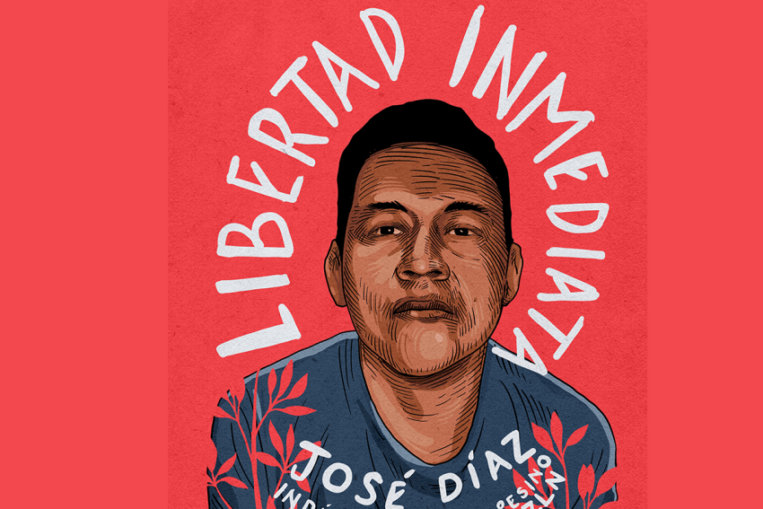
As a pyrrhic and limited constitutional reform on indigenous rights is presented in the Congress of the Union, far from the legal comprehensiveness proposed in the San Andrés dialogue, the war against the native peoples of the “Fourth Transformation” in Mexico continues throughout the national territory.
So-called organized crime ravages community spaces in Chiapas, Oaxaca, Guerrero, Michoacán, Morelos, among other states under criminal siege, while militarization and militarism go hand in hand with repeated presidential declarations of recognition of the armed forces, which have not diminished the lethal presence of the cartels in rural and urban areas.
Thus, the militarized-criminal accumulation, which characterizes capitalism today, is violently imposed.
The case of Ostula, Michoacán, is paradigmatic. The February 2 communiqué from the Nahua community of Santa María Ostula reports on the attacks by the Jalisco Cartel – New Generation, which, with a commando of at least 50 hired killers, entered communal territory, burning houses and wounding a community member. Thanks to the autonomous organization, the communal guard confronted the criminals, asserting that they will continue “on the front line, guaranteeing the security and tranquility of our population”, although they point out: “The context has not improved; rather, armed attacks at the hands of this criminal group against our guard have recently intensified.” And they ask: “What have the government of Michoacán and the National Guard done to guarantee justice and that these criminal acts are not repeated? Absolutely nothing! On the contrary, the state government has not stopped criminalizing our communal guard despite the fact that the sixth district judge, with residence in Uruapan, ordered the public powers in the state not to carry out any act tending towards its disregard.”
Likewise, as has been reported by alternative media, solidarity networks and human rights organizations, attacks by paramilitaries and organized crime cartels against Zapatista and non-Zapatista communities have continued in several regions of the state of Chiapas, causing multiple violence and forced displacements of the population (see Camino al andar, https://www.caminoalandar.org/).
In the area of the administration of justice, the war against the peoples is carried out by prosecuting resistance against megaprojects in progress. Such is the case of the sentencing to 46 years and six months in prison of community defender David Hernández in Oaxaca, for opposing the construction of an industrial park for the Inter-Oceanic Corridor on the common lands of El Pitayal, Puente Madera. The Community Assembly of Puente Madera and the Assembly of Indigenous Peoples of the Isthmus in Defense of Land and Territory (Aphdtt) stated that the criminalization of Hernández demonstrates “the corruption and collusion of the authorities of the Judicial Power with political and business groups of the region linked to organized crime, who are in the way of territorial defenders and intend to silence them by imprisoning, disappearing or assassinating them.” The assemblies state that Hernández was criminalized since 2017, for opposing the imposition of the Mexican Army’s electrical substation, and at that time he was illegally detained and beaten by the municipal police, and was also the victim of defamation campaigns and threats to his physical and psychological integrity. Again, in 2021, due to his representation as community agent of Puente Madera, and member of the coordination of Apidtt, he was prosecuted and persecuted by local and state authorities, as well as by the Sedena, Navy and National Guard, facing a first federal lawsuit (269/2021) in which he was not prosecuted. The assemblies demanded the revocation of the sentence and the dissent of criminal case 446/2022, which includes the arrest warrants against the 17 defenders of Puente Madera. They also called on the towns, communities and organizations to issue statements and carry out actions in solidarity with Hernández Salazar (Desinformémonos, 9/2/24).
In the same vein, on February 9, a communiqué was published by the political prisoners of San Juan Cancuc, Chiapas, demanding their immediate release, in the context of the upcoming hearing on their case. They are four comrades who have been in prison for 20 months on trumped-up charges and false witnesses: Agustín Pérez Domínguez, Martín Pérez Domínguez, Agustín Pérez Velazco and Juan Velasco Aguilar, who, through a simple hand-written note, demand that the indigenous prosecutor and the judge free them, and demand that “they not be left alone,” pledging to continue the struggle until they obtain their freedom.
source: schoolforchiapas.org